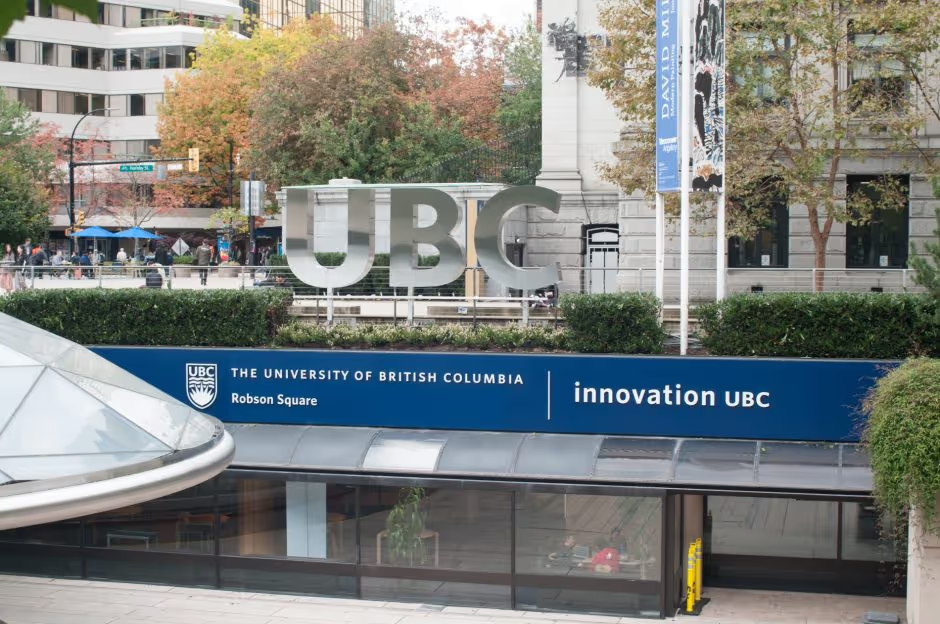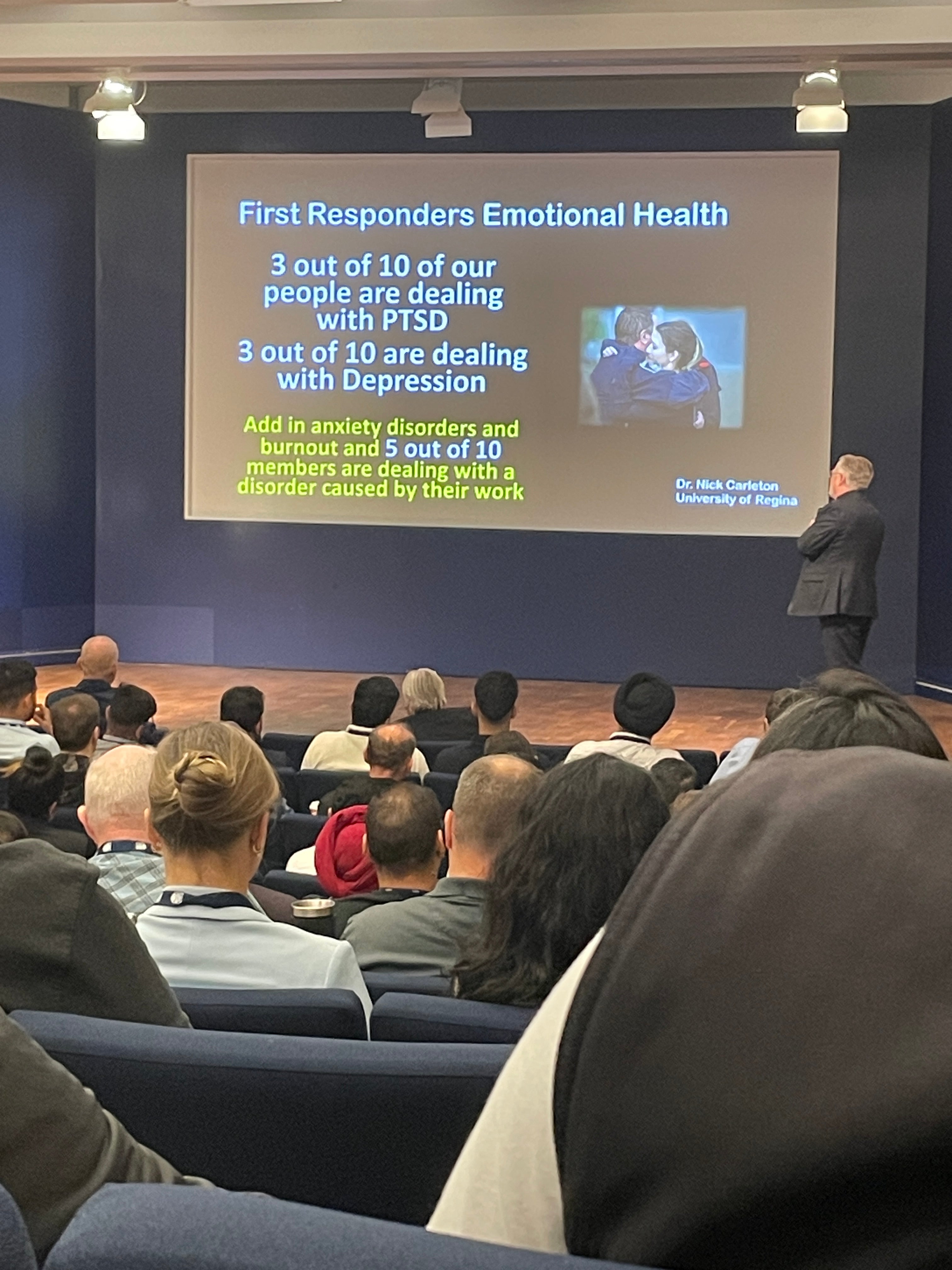Back
Back

Our Blackbird Security team recently had the pleasure of attending the first annual UBC Security Forum at the amazing UBC Robson campus. This was a full-day training event where members of the security industry had the opportunity to learn about everything from Workplace wellness, to crowd management, to the importance of converging physical security with digital security.
As active security professionals, it is important to consistently learn about the ongoings of the industry, as well as learn the most effective ways of keeping communities safe. The UBC Security Forum was the perfect opportunity to do so, and we’d like to thank the organizers at the UBC campus as well as all of the amazing speakers who attended and gave their insights.
Throughout the forum, our team learned valuable lessons and identified several key takeaways that we believed were essential for everyone, not just industry professionals. Here are the main points:
Security professionals are exposed to a variety of situations in their day-to-day, which can often be extremely intense and stressful, and may leave an impact on that individual's mental health. The impact can vary, from general sadness to clinical PTSD.
As leaders in the security field, Bob Rich - retired Chief constable of the Abbotsford Police Department - explains that it is our duty to ensure that we’re not only following our mission of safety, but also making sure our employees are doing well throughout the process. This can be done through establishing an open environment and promoting strategies that help with dealing with trauma, and even more extreme cases such as PTSD.
Here are some of the strategies that are important to promote within security teams:
Process the feelings (do not suppress them)
Let people around you know
Name the emotions you’re feeling
Consider if you need help
Because this is such an important issue that could lead to catastrophic results if not dealt with, it is also essential to have resources available to connect employees to, in order for them to be provided with professional support. This means connections to therapists, psychiatrists, and mental health professionals in general.

The feeling of stress is not foreign to a security professional - in fact, some would argue that its unavoidable within the field. Stress is a major cause of things such as high blood pressure, insomnia, and generally higher risk of heart attack.
During her speech at the UBC Security Forum, Carolyn Sinclair, President of Strategic Business Risks Inc. taught us that It is essential to manage stress and wellness when working in the security industry.
If problems with stress get out of hand, it can not only affect your personal health and personal life, but also affect the way you perform on-site - leading to a lack of safety within the community.
If you want to manage stress, Carolyn laid out the 3 M’s for stress:
Monitor: Look for signs of extreme stress affecting your day-to-day life
Manage: Actively find ways of managing your level of stress
Motivate: Encourage yourself and others to be aware of the feeling and affects of stress
For Wellness, here are the 3 C’s to keep in mind:
Courage: Putting yourself first takes courage! Prepare yourself to take that first step.
Consideration: Always consider the wellness of yourself and others when making decisions
Commitment: Stay committed to maintaining your well-being.
With the yearly rise in cyber threats for businesses, it is not only important to have good digital hygiene, but also to have a layered security approach. This means converging digital with physical security and integrating this system into your safety plan.
In her speech, Mary Carmichael, President of the Information Systems Audit and Control Association, goes over how to build a convergence strategy:
Start the conversation: Initiate quarterly joint threat assessment meetings between your physical security and IT teams to identify potential vulnerabilities
Coordinate Policies: Develop security protocols including shared incident tracking tools that allow physical breaches to be linked with any network anamolies
Establish Governance: Ensure there is cross-team competency, which includes clear reporting structures and 24/7 communication channels between security guards and IT teams
Practice Together: Carry out regular exercises with your teams that involve the simulation of threats pertaining to both cyber and physical security.
By aligning your cyber and physical security teams, you're not just doubling your protection - you're creating a unified front that’s more adaptive and resilient. As threats become increasingly complex and blended, convergence is no longer optional; it’s a critical component of any modern security strategy.
While security and policing play a vital role in maintaining order, some issues can’t be solved through arrests alone. When crime remains persistent, it’s time to consider a more holistic, integrated approach to community safety.
There are two main solutions to integrate when combating persistent crime in a community:
Adequate Housing: Research shows that those experiencing homelessness are more vulnerable to crime, especially violent crimes and sexual assault. Providing secure housing reduces both vulnerability and desperation-driven offenses.
Social Programs: Welfare benefits, education opportunities, job training, etc are all linked to lower crime rates
When combined with strong security and policing efforts, these social supports form a comprehensive strategy that addresses the root causes of crime and helps communities thrive.
The global events industry market is expected to reach a revenue of 2.1 trillion by the year 2032, exhibiting a compound annual growth rate of 6.4% from 2023 to 2032.
With this strong growth, the reliance on private security will also grow, as police forces will be too spread thin and there simply won't be enough coverage without additional guards in place.
This was underscored by David Jones, Co-Lead of Integrated Safety and Security for Vancouver FIFA 2026. Jones noted that FIFA is implementing a layered security approach that heavily incorporates private security teams to support law enforcement. With matches drawing tens of thousands of attendees, ensuring a secure and smooth experience requires extensive collaboration between public and private partners.
Private security firms will play a frontline role - not just during matches but in safeguarding surrounding infrastructure, transportation hubs, fan zones, and VIP venues. As global attention turns to Canada for FIFA 2026 and beyond, it's clear that private security is no longer optional - it’s critical.
We extend our sincere thanks to the team at UBC for hosting such a meaningful and well-organized forum. We're also grateful to all the speakers who shared their expertise and perspectives, offering valuable insights into both the current landscape of security operations and the direction the industry is headed. Events like this play a crucial role in shaping collaborative, forward-thinking approaches to safety and security.



